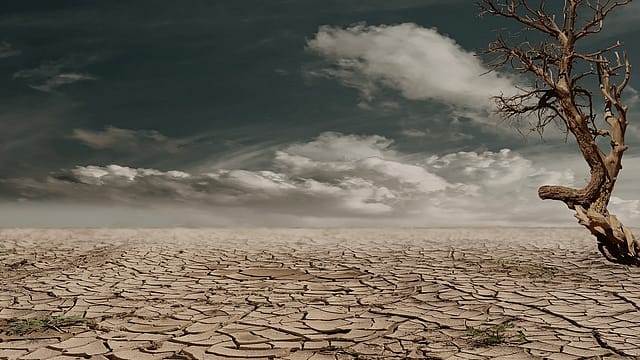Climate crisis is the biggest global risk, says WEF
ADVERTISEMENT

The World Economic Forum (WEF) says economic and political polarisation will rise this year but the biggest risk to the world is posed by climate change.
According to WEF’s Global Risks report released on Wednesday, between 2008 and 2016 over 20 million people a year have been forced from their homes by extreme weather and the worldwide economic stress; damage from natural disasters in 2018 totalled $165 billion, according to the forum.
The report says climate change is striking harder and more rapidly than it was expected to. “The last five years are on track to be the warmest on record, natural disasters are becoming more intense and more frequent, and last year witnessed unprecedented extreme weather throughout the world,” it says.
For the first time in the survey’s 10-year outlook, the top five global risks in terms of likelihood are all environmental. The WEF has sounded an alarm on extreme weather events which can cause major damage to infrastructure and loss of human life and a failure of climate change mitigation and adaptation by governments and businesses. It also warns against irreversible biodiversity loss, ecosystem collapse, human-made environmental damage and environmental crimes such as oil spills.
Since 2017, extreme weather has been the top global risk, in terms of likelihood. This year it was the top risk in terms of impact as well. In 2019, weapons of mass destruction were called the top global risk in terms of impact.
“Alarmingly, global temperatures are on track to increase by at least 3°C towards the end of the century—twice what climate experts have warned is the limit to avoid the most severe economic, social, and environmental consequences,” the forum said. Climate change is expected to have a near-term impact including social, economic, and geopolitical tensions, and loss of life.
The report also forecasts more domestic and international divisions and economic slowdown this year. “Geopolitical turbulence is propelling us towards an “unsettled” unilateral world of great power rivalries at a time when business and government leaders must focus urgently on working together to tackle shared risks.”
The forum asked over 750 global experts and decision-makers to rank their biggest concerns, out of which 78% said they expected “economic confrontations” and “domestic political polarisation” to rise in 2020.
“The political landscape is polarised, sea levels are rising and climate fires are burning. This is the year when world leaders must work with all sectors of society to repair and reinvigorate our systems of cooperation, not just for short-term benefit but for tackling our deep-rooted risks,” said Børge Brende, president, World Economic Forum.